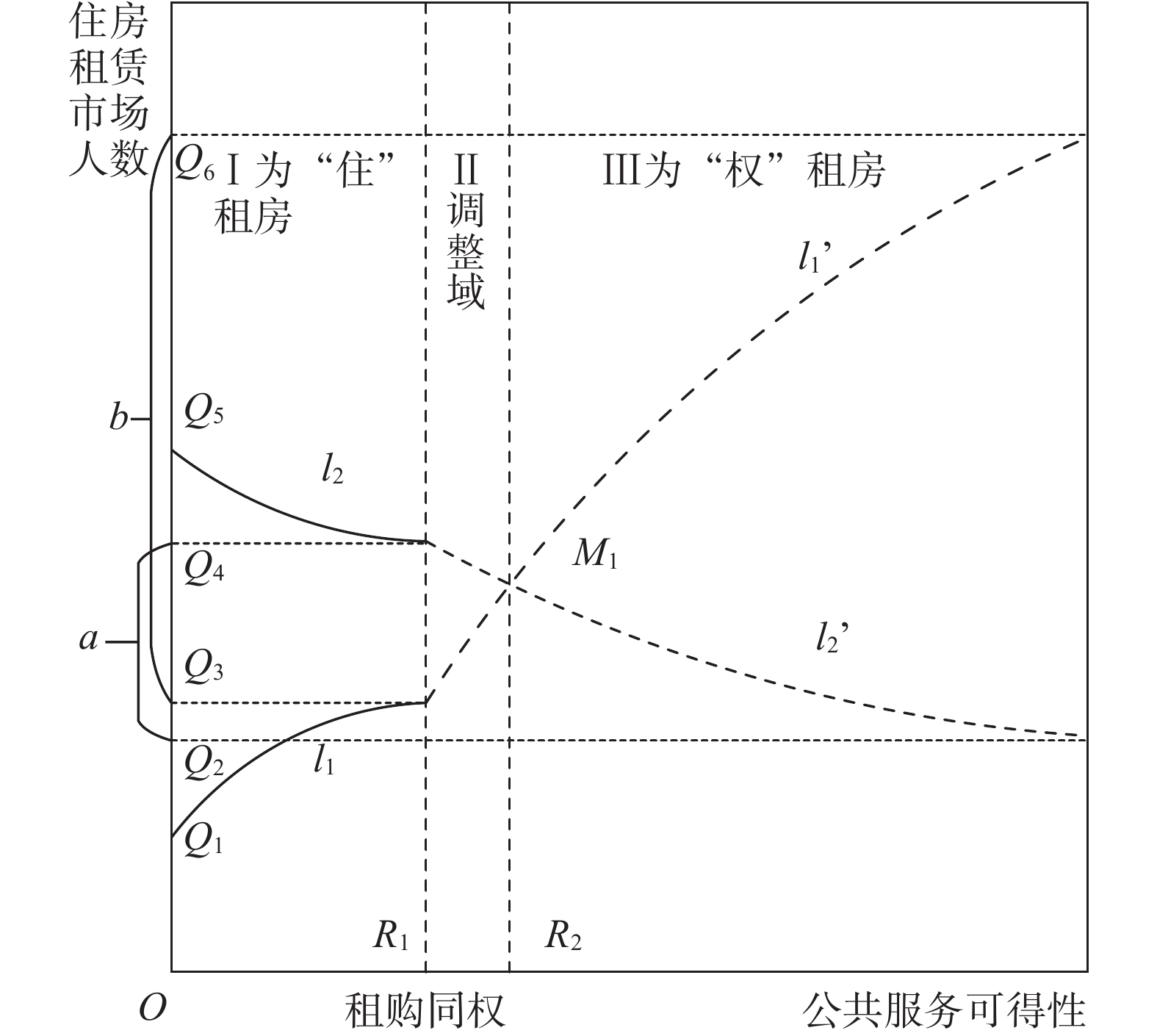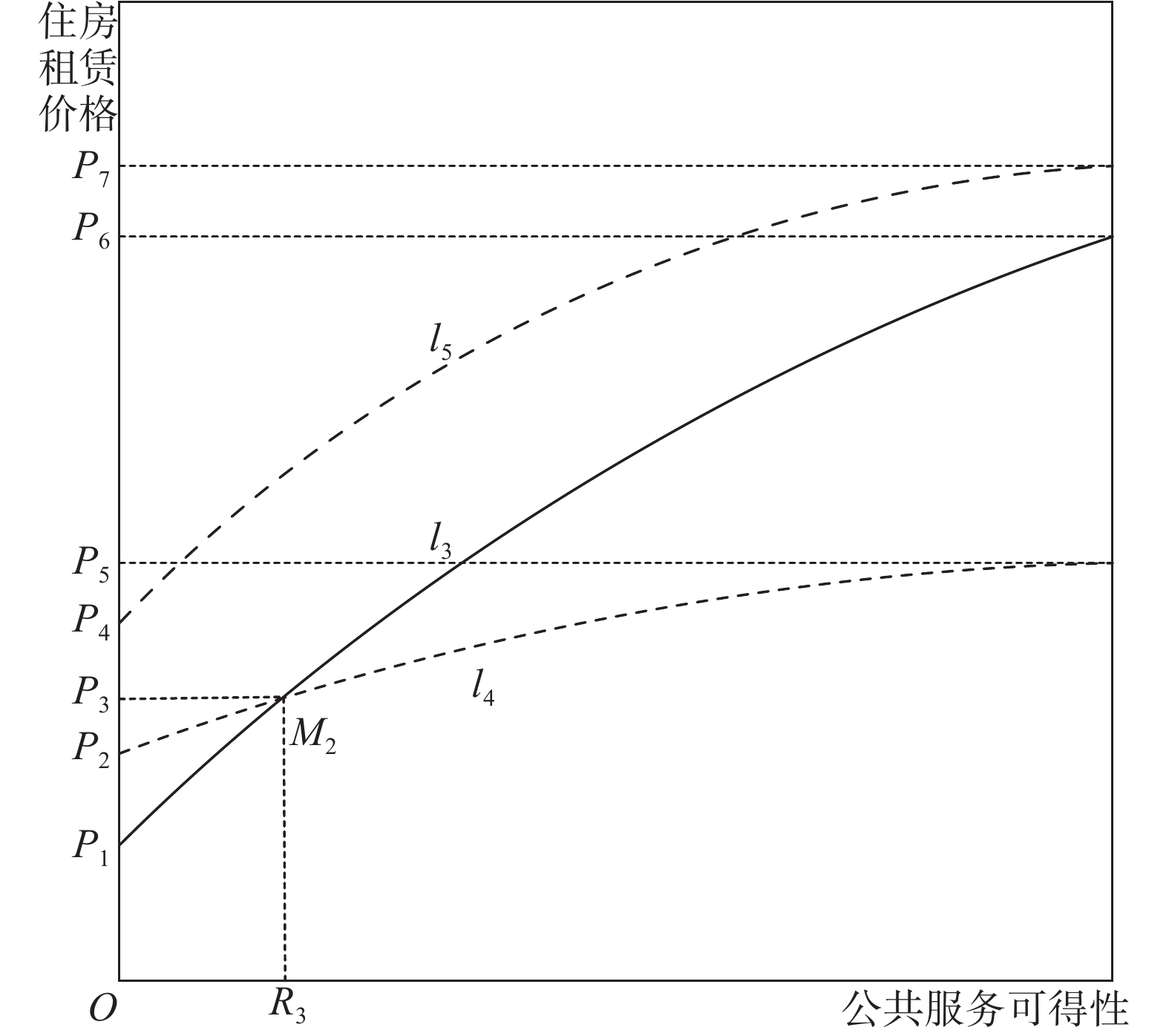Citation:
Jie CHEN and Yidong WU. The Possible Conflict between the Housing Rights and the Rights to Public Services Availability in the Process of “Equal Rights between Buyer and Tenant”[J]. Academic Monthly, 2019, 51(2): 44-56.

The Possible Conflict between the Housing Rights and the Rights to Public Services Availability in the Process of “Equal Rights between Buyer and Tenant”
-
Abstract
Rent-purchase equilibrium is a new direction of the future housing market development in China, which has been made clear by the central government in recent years, so as to solve the imbalance and insufficiency of the housing market. And " equal rights between buyer and tenant” has been put forward as an important policy orientation. However, under the objective background of the imbalance of public service allocation and the shortage of high-quality public resources, although this policy can increase the demand for housing rental rapidly in the short term and expand the scale of the rental market, it also stimulates many middle- and high-income households to rent speculatively, which will push housing rent up rapidly, squeeze low-income groups out of the rental market. This paper puts forward that, while increasing the balance of public service allocation and promoting the reform of various supporting systems, we should begin with a real understanding of what the housing rights is and find out the functional orientation of the housing rental market. Decoupling of the housing rights from the rights of obtaining public services, preventing the acquisition of public services from capitalizing. Only in this way, can we achieve a better housing market that all people enjoy their rights to housing.
-

-
References
-
Access
-
-
[1]
Zhiping HU
. Political Economy of the Change of Rural Public Service Supply in China: Development Stage and Government Behavior Framework. Academic Monthly,
2019, 51(6): 53-63.
-
[2]
Siyou GE
. On the Vacillations of Public Justification. Academic Monthly,
2020, 52(7): 14-23.
-
[3]
Chen Shuisheng
. . Academic Monthly,
2018, 50(5): 101-110.
-
[4]
Ji ZHAO
. Complexity and the Reconstruction of Public Administration. Academic Monthly,
2023, 55(2): 80-91.
-
[5]
Qingxiong ZHANG
. The Social Function of Public Interpretation and Its Intersubjective Communication Mode with Critical Dimension. Academic Monthly,
2019, 51(11): 24-30.
-
[6]
HE Qizhi
. A Proactive Government in the Digital Era: From the Perspective of Public Governance. Academic Monthly,
2024, 56(3): 96-106.
-
[7]
Shuisheng CHEN
. Public Policy Failure and Its Prevention: An Integrated Analysis Framework. Academic Monthly,
2022, 54(2): 91-102.
-
[8]
JIANG Tao
. The Trading Effects and Service Returns of Data Assets with Trading Ecology. Academic Monthly,
2024, 56(1): 70-80.
-
[9]
Ying WU
, Feizhou ZHOU
. The Spatial Identity Right: The Citizenization of Peasant-turned-citizen. Academic Monthly,
2021, 53(10): 142-153.
-
[10]
Zhang Jiang
, Habermas
. . Academic Monthly,
2018, 50(5): 5-13.
-
[11]
Xiaoxing HUANG
. Institutional Connectedness: The Multiple Logics and Practice of Volunteer Services in China. Academic Monthly,
2022, 54(4): 131-143.
-
[12]
YUAN Xiaoyan
. City Size,Service Development and Female Migrants Employment. Academic Monthly,
2023, 55(9): 58-67.
-
[13]
Ling HU
. From Opening Resources to Basic Service: A New Viewpoint of Platform Supervision. Academic Monthly,
2019, 51(2): 96-108.
-
[14]
Jiechang XIA
, Yu XIAO
, Shilin LI
. Re-measurement and Influence Factors of Total Factor Productivity in China’s Service Industry. Academic Monthly,
2019, 51(2): 34-43.
-
[15]
Minli NIE
. Shi and Modern Public Intelecturals. Academic Monthly,
2022, 54(10): 23-32.
-
[16]
Dazhong CHENG
, Li YU
, Ning WANG
. Opening-up and Liberalization of Services:Basic Trend, International Comparison and China’s Strategy. Academic Monthly,
2019, 51(11): 40-59.
-
[17]
Hongquan LIAN
, Yufan SUN
. Laboratory Experimental Evidences on Public Cooperation of Chaoshan Culture and Hakka Culture. Academic Monthly,
2023, 55(3): 67-81.
-
[18]
. . Academic Monthly,
2017, 49(06): 83-98.
-
[19]
. The Internal Logic of “Sharing Economy” and Public Policy. Academic Monthly,
2018, 50(04): 86-97.
-
[20]
Xin GU
, Qi ZHAO
. The Government’s Functioning of Meta-governance in Public Innovation. Academic Monthly,
2023, 55(1): 69-80.
-
-




 沪公网安备 31010102003103号
沪公网安备 31010102003103号 DownLoad:
DownLoad:
